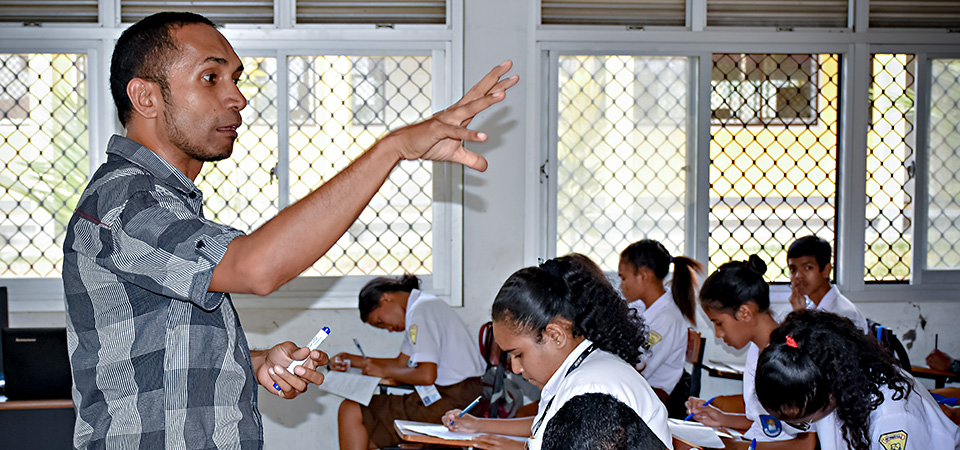“Now I am aware that violence is not the way to educate others, but through respect”
Gender-based violence affects at least one in three women in Timor-Leste at some point, including many during the formative years of high school. The Connect With Respect project is working with teachers, students and parents to address the root causes of some of this violence.Date:

Faustino S. de Carvalho has been a teacher for 14 years, but noticed a change in his style after a week’s training under the Connect With Respect programme. “Now I am really aware that violence is not the way to educate others, but through respect. When you respect students, they will respect and listen to you,” he said. The change has also been noticed at home, he said. “My wife has been really surprised and the kids who live with me at home have also become closer and communicate more with me.”
The Connect With Respect framework consists of a series of extra-curricular sessions implemented by the Ministry of Education with the assistance of UN Women, and is generously supported by the governments of Australia and of the Republic of Korea. The approach empowers teachers and school communities to prevent, address and respond effectively to gender discrimination by focusing on addressing the root causes of violence working together with teachers, students, parents and community leaders.
Students have also welcomed the change in teacher Faustino’s attitude. “He used to scold us and was a bit aggressive. It was scary to see him around. But now we can easily talk to and ask him questions. I feel safe to express my thoughts in his class,” said one of his ten grade students (16 years old).
Making sure schools are safe and inclusive is key to improving education and creating a society free from violence against women and girls. “We are now taking an approach of creating a safe space for girls to feel secure and able to express themselves in the school environment,” de Carvalho said. “We have also reached out to the students’ parents to actively involve them as well.”
De Carvalho has enrolled a number of his students in the Connect With Respect initiative, to help them build their sense of fairness and become role models. His plan seems to be working, he said. “I’ve heard those kids are now telling their friends not to make noise or bother others in the class. They are advocating for respect.”
The project is a part of UN Women’s regional Stepping Up initiative. It is being piloted in three schools in Dili and Liquica in partnership with the Ministry of Education, parents and community leaders.